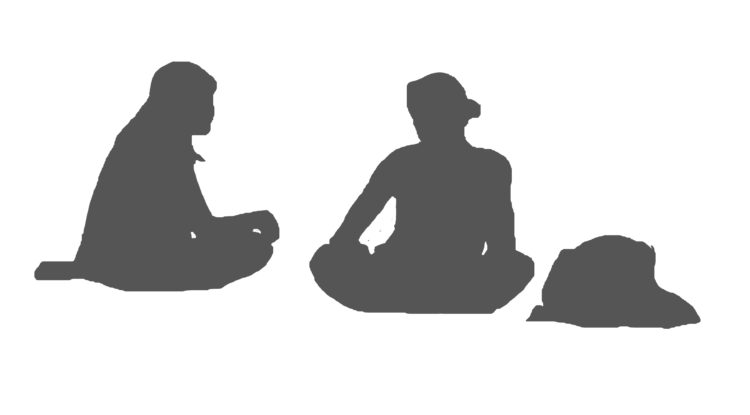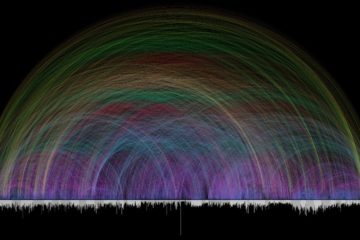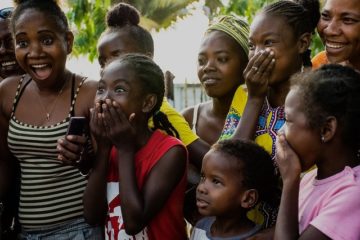Kristen, Tonya, & Prejudice

A few months ago I wrote a piece called “Race Is A Meaningless Distinction” where I continued my theme that people aren’t color-coded by talking about what little you could know about two people of a different race (a white person and a black person in this example) based on their portraits alone.
Interestingly for something so simple and so obviously true, I got pushback. It came in two overlapping categories. One where people attributed group characteristics (of being white or black) to one of the individuals and the other where some people were adamant that we can know, based on race alone, that the black person in the portrait has faced greater obstacles and hardships in life than the white person in the portrait.
Both of these instances of treating an individual as a representative of a group are examples of prejudice (pre-judgment) and perhaps bigotry and racism, but it is the last one – the one that assumes a greater degree of hardship based on race alone – that I want to give attention to here.*
I’m not sure where this worldview comes from, but I know that for some people it runs deep. I have had a number of conversations regarding race over the years where someone argued vehemently that being born black was by itself a hardship worse than child abuse, molestation, or any other traumatizing human experience that was brought up. It’s odd, but in my experience this damaging and wrong form of racial discrimination has never come from a black person, but every time from white women.
I have found that the most effective way to push back on this flawed and damaging racial lens is to tell stories of real people. I can already see the dismissiveness in the eyes of some of my data-oriented readers who see anecdotes (stories told to reveal a truth) as misleading (which they can be), and much prefer to examine the data on a topic. The problem here though, is that individuals are by definition not groups or perfect representations of one of the many groups (race, age, gender, stage of life, nationality, ethnicity, religious, education, political affiliation, etc.) they belong to. Individuals are unique and complex.
At this point in my life, my experiences – and probably yours as well – have provided me with hundreds of examples about hardship and suffering’s indifference to race. The story of “Kristen” and “Tonya” is just one of them.
Kristen is a wonderful lady that lives in my neighborhood. She has a nice house, an awesome job that she is really good at, money to travel and enjoy what life has to offer, respect and admiration in the community, great friends, and a loving and supportive family. This isn’t a surprising outcome for her life, it was expected really. Her parents stuck together and worked hard to cultivate her into the person she is today. Her parents made sure that she was loved, protected, nurtured, educated, and morally and spiritually developed. Kristen also made her own choices along the way that made the most of what her parents had given her. She works really hard and makes good choices. Kristen knows very, very little of the dark or even dysfunctional things of life.
For several years you could often find Tonya sitting on the sidewalk in front of Kristen’s house. Hardship and pain are written all over Tonya’s face and body. She is pleasant to talk to but so obviously shattered on the inside. She sat in that spot in the freezing cold, in the rain, and in the scorching sun because she didn’t know what else to do with herself. In a way she couldn’t do anything else, and she knew it was a place that people who knew her would bring her food or a blanket from time to time or even stop and try to make her not feel so alone. One time she let her foot get too far out into the street and it got ran over and crushed by a car whose driver that didn’t even notice her. She got her foot patched up at the local hospital and was right back at her spot within a couple of days. Her life is so sad and full of pain, she has nothing and no one, but like Kristen it isn’t a surprising outcome to her life. Her mom got pregnant with her by a man she wasn’t married to and didn’t stick around. She grew up poor and neglected. Her mother verbally abused her and looked the other way as her various boyfriends molested Tonya. She got into drugs and alcohol early in life. She ran away from home while she was still young trying to escape, only to find worse things waiting for her out in the world. Tonya made choices along the way that compounded her problems, but that’s not all that surprising either. Tonya knows of little else than the dark and painful things of life – the things that pain and twist one’s soul.
Kristen is black. Tonya is white. Pain, suffering, hardship, and “privilege” know nothing of a color-coded world.
May we all one day live in a world where we greet each person we meet as the unique individual that they are.
*Words like bigot, prejudice, and racist are too often misused as weapons to reject, dismiss or silence someone. Because of this misuse in anti-intellectual name-calling they are losing their significance and meaning in our society. I am not name-calling here, but using the words as they were intended – to describe a mental model or worldview.
– –
You may also be interested in:



No Comment